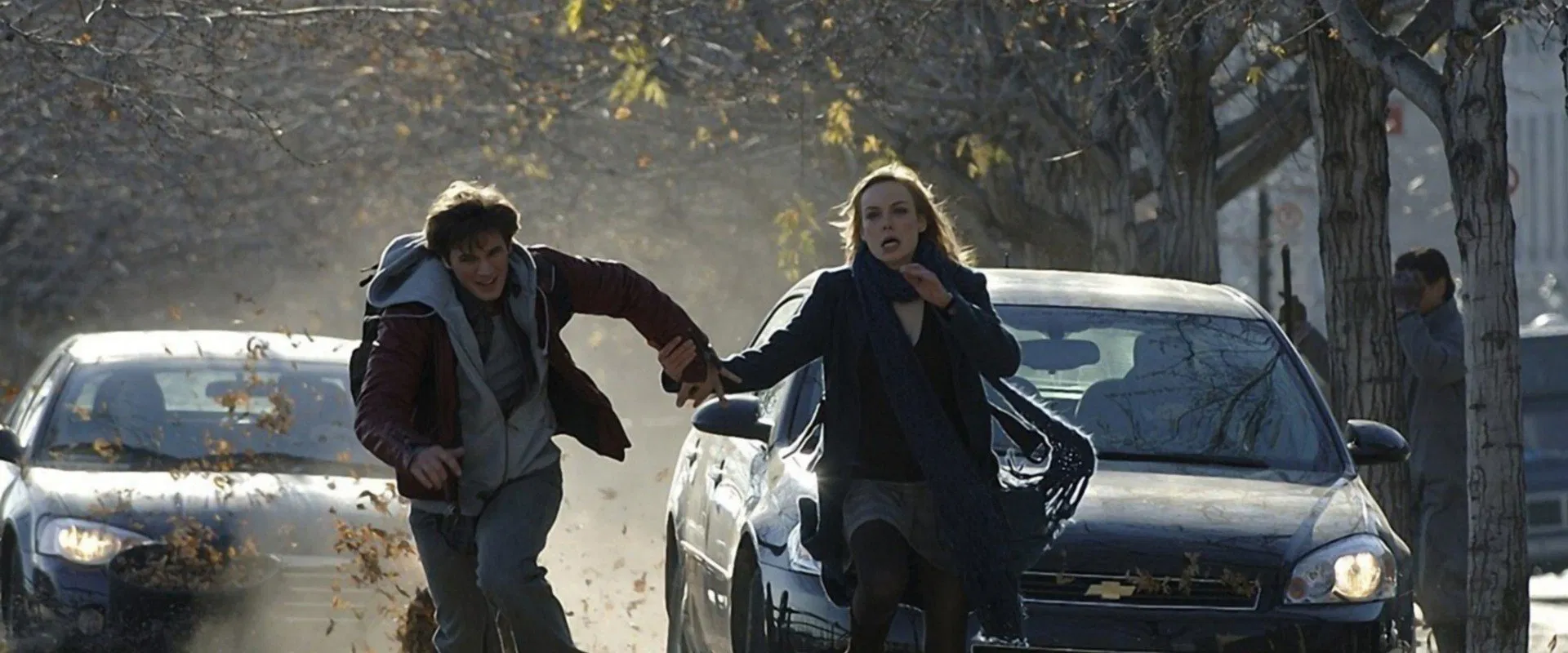You could say that WarGames: The Dead Code is an object lesson in Hollywood’s special gift: draining the life out of a semi-classic property, embalming it in digital gloss and algorithmic plotting, and then casting it back onto the market in hopes we’ll confuse the bluish afterglow for old-fashioned excitement. If the original WarGames was a deft adolescent fever dream about the nuclear terrors and computer-age naiveté of Reagan’s America, Gillard’s 2008 “sequel” is a reminder that nostalgia is sometimes best left in mothballs. Watching The Dead Code is like sitting through a pop quiz on modern surveillance anxiety written by copy editors who just discovered what phishing is.
In the post-9/11 shuffle, the scriptwriters have finally gotten their hands on what they imagine is a “relevant” update: the government, now more bumbling than ever, runs a covert counter-terrorism operation disguised as—wait for it—an online video game for would-be jihadists. I can imagine the pitch meeting: “What if Call of Duty and the Patriot Act had a baby?” Except here that baby is left on the doorstep in a box marked “explosives.” The absurdity of the premise invites you to suspend a great deal more than your disbelief; you’re asked to forfeit your sense of narrative causality entirely.
The teenager at the heart of this mess, Will Farmer, might be played by Matt Lanter, but he seems more like the product of a screenwriter’s search-and-replace function than anyone resembling an actual adolescent. His “hacking” skills involve the usual screen gibberish—furious typing, stern faces, and a complete lack of wonder or wit. The original movie’s sense of awe at technology—its belief that a teen and a machine might inadvertently flick the world’s hand-grenade pin—has here been replaced with a kind of deadening hyperactivity, where every keystroke brings less drama and more tedium.
The rest of the cast gamely paddles after this runaway script, but most are doomed by the sheer ballast of cliché. Colm Feore’s gravelly WOPR return is a cameo that reeks of contractual obligation (and one imagines, behind that stoic delivery, the soul-withered resignation of an actor who’s read the script). Annie (Amanda Walsh) is stuck playing sidekick; she's allowed to be both clever and romantic in fleeting increments, but never seems to connect with Will except at the director’s barked insistence. Any sparks between them are snuffed out by the film’s need to pivot—at a moment’s notice—from teenage date to terrorist manhunt.
Director Stuart Gillard approaches the whole thing with a TV-movie desperation, as if longer takes or human moments might disqualify the thing from basic-cable purgatory. Gone is the original’s taste for chilly suspense and satiric bite; in its place we get a sort of digital whiplash, a manic insistence on big “moments” that never land. The screenplay, meanwhile, must have been spit out by a committee of bots with a grudge against idiom: lines thud, exposition is as subtle as a financial audit, and the rare attempts at gravitas (“You know what this is? An incredible load of horse shit!”) are less rallying cry, more death rattle.
If the film has “themes”—artificial intelligence, national paranoia, the blurred lines of gaming and reality—they’re clumsily geometric, drawn in only to spackle the cracks in the frantic, incoherent narrative. It mimics the gestures of smart sci-fi (the government as omnipotent, tech both liberating and monstrous), but never for a moment achieves the curious dread that once clung to the sound of Joshua’s voice in the original. It aims at The Matrix and lands closer to the straight-to-video bargain bin.
There’s an impulse here to mourn what’s been lost—a time when we could still imagine a teenager, a computer, and a phone line accidentally saving or dooming the world. The Dead Code has no such innocence, and precious little self-awareness; it’s all frenzied plot and anti-thrill. If the first movie asked whether the ultimate weapon could be disarmed by human decency, this one asks if there’s anything left for a sequel beyond automated paranoia.
It’s not enough to call WarGames: The Dead Code disappointing. It is a movie that dares you to care, fails, and hopes you don’t remember in the morning. There’s no dream, no threat, and certainly no play. There’s only the persistent drone of a once-warm modem line now flatlining for all eternity.


